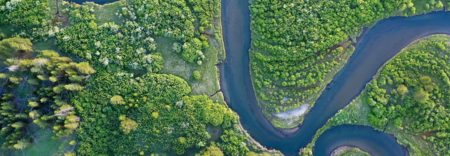Academic partnerships
The Biodiversity Consultancy operates at the intersection of cutting-edge scientific research, conservation policy, and the private sector. Universities play a critical role in driving innovation and are key research partners for The Biodiversity Consultancy. Through our collaborations with academia, we help develop innovative approaches, solutions and insights that improve the effectiveness of business engagement with nature. This helps us transform complex theories into actionable and robust biodiversity solutions for businesses.
Value of research collaborations
The Biodiversity Consultancy’s research, in collaboration with academic partners, is central to delivering evidence-based outcomes for our clients. It helps us develop innovative and robust solutions, and share our insights to drive effective conservation through business engagement with nature.
Our research and collaborations strengthen our ability to provide effective solutions in the evolving landscape of nature positive. It enhances our understanding of emerging technical approaches, and allows us to translate complex concepts and theories into practical business solutions.
The Biodiversity Consultancy exists to bridge the worlds of business and biodiversity. We accelerate organisations’ journeys towards nature positive futures and recognise the importance of collaboration with key academic partners to achieve this.
Partnerships
University of Cambridge
The University of Cambridge Conservation Research Institute is a globally leading centre for conservation science. Their research focuses on the relationship between biodiversity conservation and society, facilitating the protection and flourishing of a stable climate, resilient ecosystems, and improved human wellbeing. We work alongside the Cambridge Conservation Evidence group, who review and disseminate science-based evidence to inform effective conservation action.
Our research with the University of Cambridge focuses on ways to improve approaches used by business to measure and mitigate their biodiversity impacts. We work closely to establish principles for evidence-based practice and assess the effectiveness and feasibility of biodiversity impact mitigation strategies. The partnership also allows our team to evaluate the suitability of new biodiversity metrics for different business use cases using rigorous scientific methods.
The Biodiversity Consultancy is also recognised as an Evidence Champion, reflecting our efforts to promote and apply recommendations that are based on the best available science.
University of Oxford
The University of Oxford’s Nature Positive Hub convenes leading researchers, industry practitioners, and cross-disciplinary expertise to define, measure, and deliver a nature positive future. Research areas include the measurement of nature positive outcomes, development of tools to scale outcomes across sectors, and evaluation of regulatory frameworks and financial mechanisms – all of which provide evidence to operationalize a nature positive future at various scales and contexts.
Our research partnership with the Oxford Nature Positive Hub takes an innovative and collaborative approach to driving nature positive outcomes for businesses. To date, our joint research has helped business and academic stakeholders identify and prioritise critical knowledge gaps to direct future research, explore avenues for transformative change to achieving meaningful business contributions to nature positive goals, and evaluate the suitability of commonly used biodiversity metrics for different business contexts.
University of Queensland
The Biodiversity Consultancy partners with UQ’s Centre for Biodiversity and Conservation Science on business contributions to conservation science. The Centre conducts leading solutions-oriented research for biodiversity conservation, ranging from site-based research on biodiversity and habitat restoration to global studies of biodiversity risks to shape policy and industry practices.
Through this collaboration, we conduct research on topics including responsible mining, biodiversity offsetting and ecological compensation, equitable implementation of no net loss and net gain under environmental and socioeconomic dimensions, and business impacts and dependencies on nature. We also host research placements, providing students with hands-on experience in applying their research to the business world.



